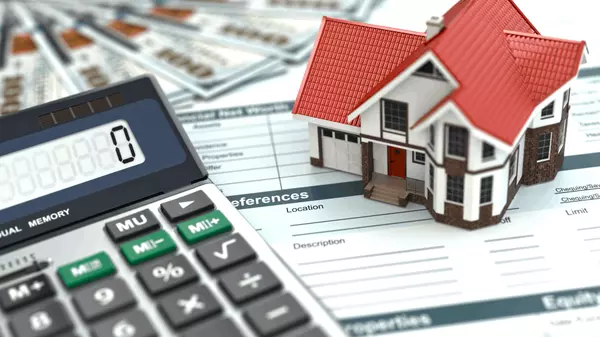
Debunking Today’s Most Common Housing Market Myths
You’ve probably heard the saying, “Don’t believe everything you hear.” This holds especially true when navigating today’s housing market, where misinformation can lead to poor decisions. Whether you're buying or selling, it's crucial to ensure you have access to accurate and reliable information. Working with a real estate professional can help you separate fact from fiction. Here are three common housing market myths that real estate agents are debunking every day: 1. The Market Is Going to Crash, So I’ll Wait for Lower Prices The idea that the market is about to crash and home prices will plummet is a persistent myth. If you’re waiting for this to happen, you could be making a costly mistake. Unlike the 2008 financial crisis when an oversupply of homes drove prices down, today's market is experiencing an undersupply. This scarcity of homes for sale is actually keeping prices stable. While price trends may vary by location, there’s no data to suggest a nationwide crash is on the horizon. Waiting for one could mean missing out on current opportunities. (see chart below): 2. There Aren’t Enough Homes for Sale Some buyers are hesitant to enter the market because they believe there simply aren’t enough homes available to meet their needs. However, inventory levels have improved. Realtor.com reports that while supply is still lower than pre-pandemic levels, there are more homes available for sale than last year. This means that while the market isn’t back to “normal,” it's heading in a positive direction, and buyers have more options than they might think. (see chart below): 3. I Need a 20% Down Payment to Buy a Home One of the biggest misconceptions is the belief that you need a 20% down payment to buy a home. According to Fannie Mae, nearly 90% of consumers overestimate the required down payment. In reality, most first-time buyers are putting down just 6%, far below the 20% figure that has become so ingrained. Depending on the type of loan, buyers can qualify with as little as 3.5%, and in some cases, even 0% down. This means you can start your home-buying journey with less upfront cash than you may have imagined. (see chart below): The Value of a Knowledgeable Agent If you’ve delayed your plans because of these common myths, it’s time to consult a trusted real estate agent. They have the tools, data, and expertise to help you make informed decisions and move forward with confidence. Conclusion If you're hearing conflicting information about the housing market, don't go it alone. Reach out to a real estate expert who can guide you with the facts, ensuring you make the best decision for your unique situation.

How To Choose a Great Local Real Estate Agent
Selecting the right real estate agent can make all the difference when buying or selling a home. With so many options available, how do you pick the best one for your needs? Here are some key tips to help guide your decision: 1. Evaluate Their Reputation Start by gathering information on local agents. Ask friends, family, or colleagues for recommendations, and check online reviews to get a sense of an agent's reputation. An agent with strong, positive feedback and a solid online presence is a great start. Ideally, you want someone whose name pops up repeatedly as reliable and effective. For example, as Freddie Mac suggests, it’s beneficial to choose an agent who specializes in your specific needs. If you're after an energy-efficient home or new construction, look for an agent with expertise in those areas. The right experience makes a difference. 2. Seek Out Local Market Knowledge Real estate is highly local, and a great agent will have an in-depth understanding of both the national trends and the specific conditions in your area. They’ll be able to explain how national news impacts your local market and what it means for your home search or sale. In addition, having a good sense of the neighborhoods, schools, and amenities you're considering can make a big difference. As Business Insider advises, spend time talking to potential agents about your local market to gauge their level of knowledge. 3. Assess Their Communication Style and Availability The real estate process requires consistent and clear communication. You’ll want an agent who listens to your needs and concerns, is quick to respond, and keeps you in the loop every step of the way. If they’re managing too many clients or not responsive, it can delay important decisions. To ensure you’re on the same page, Bankrate suggests interviewing potential agents to learn their preferred methods of communication. Whether you prefer texting, phone calls, or emails, make sure the agent is comfortable with your communication style and available when you need them. 4. Go With Your Gut Ultimately, trust your instincts. Even after evaluating experience and communication, how you feel about an agent is important. Do you feel comfortable working with them? Do they inspire confidence? You’ll be collaborating closely, so you should feel at ease with your choice. As Business Insider notes, it's okay to choose based on rapport, especially after verifying their expertise. If an agent seems approachable and you click with them, that’s a good sign. Bottom Line Choosing the right real estate agent is a critical step in making your transaction smooth and successful. By checking their reputation, ensuring they have local market expertise, aligning communication styles, and trusting your gut, you’ll find the right agent for you. If you're ready to take that step, I’d be honored to help guide you through the process. Let’s connect and see how we can work together!

How Mortgage Rate Changes Impact Your Homebuying Power
If you're considering buying or selling a home, mortgage rates are probably top of mind. That's because mortgage rates directly impact how much house you can afford and how much you'll be paying in your monthly mortgage payment. Let's break down what you need to know about mortgage rates and how they affect your homebuying power. What’s Happening with Mortgage Rates? Mortgage rates have recently shown signs of easing. While this can be positive news for potential homebuyers, it's crucial to remember that rates are influenced by several factors and can be unpredictable. Elements such as the broader economy, job market stability, inflation trends, and decisions from the Federal Reserve all influence rates. Even with a decline in rates, they can still fluctuate depending on economic data. As Odeta Kushi, Deputy Chief Economist at First American, explains: "The ongoing deceleration in inflation, coupled with the Federal Reserve’s recent indication of potential rate cuts [in 2024], suggests an environment supportive of modest declines in mortgage rates. Barring any unforeseen circumstances and resurgence in inflation, lower mortgage rates could be on the horizon, but the journey towards them might be slow and bumpy." How Do These Changes Affect You? Changes in mortgage rates can significantly impact your monthly mortgage payment. Even a small adjustment in the rate can shift your overall costs. For example, if you’re budgeting to afford a $2,600 monthly payment for a mortgage, a shift in rates could increase or decrease the size of the loan you can secure within that payment range. The green part in the chart shows payments in that range or lower based on varying mortgage rates (see chart below): Understanding these shifts allows you to make more informed decisions when planning your home purchase. Staying Updated on Mortgage Rates You don’t need to be an expert on mortgage rates, but staying informed can help. Real estate professionals can provide you with current insights, tools, and resources, such as charts and calculators, to illustrate how rate changes impact your buying power. Having a knowledgeable agent by your side means you’ll have someone to interpret the market data and guide you through your homebuying or selling process with confidence. Bottom Line Whether you’re actively searching for a home or just exploring your options, staying informed about mortgage rates is key. If you have questions about how rate changes might affect your homebuying journey, let’s connect. Having the right information will empower you to navigate the market with greater confidence.
Categories
Recent Posts










